Animals- Food and Shelter - 2 Class 1 Worksheet Science
Q1: Multiple Choice Questions (MCQs).
(i) What do most animals eat?
(a) Rocks
(b) Sunshine
(c) Food
(d) Water
Ans: (c)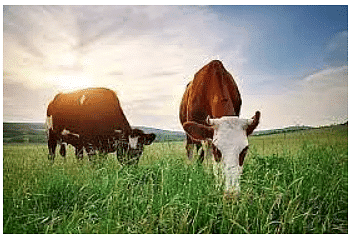 Animals eat food to get energy for their activities.
Animals eat food to get energy for their activities.
(ii) Which of the following animals is a herbivore?
(a) Lion
(b) Eagle
(c) Cow
(d) Wolf
Ans: (c)
Herbivores eat only plants.
(iii) What do carnivores eat?
(a) Fruits and vegetables
(b) Other animals
(c) Both plants and animals
(d) Insects
Ans: (b)
Carnivores eat other animals.
(iv) Omnivores eat both:
(a) Only plants
(b) Only animals
(c) Plants and animals
(d) Only fruits
Ans: (c)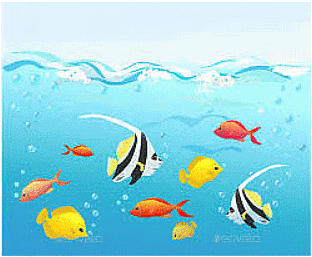 Omnivores eat both plants and animals.
Omnivores eat both plants and animals.
(v) Where do fish usually live?
(a) Caves
(b) Nests
(c) Ponds and rivers
(d) Trees
Ans: (c)
Fish usually live in water bodies like ponds and rivers.
(vi) Which of the following is a suitable shelter for a bi(rd?
(a) Underwater
(b) Den
(c) Burrow
(d) Nest
Ans: (d)
Birds build nests to lay eggs and raise their babies.
(vii) Where do dogs and cats usually live?
(a) Trees
(b) Cages
(c) Beehives
(d) Caves
Ans: (b)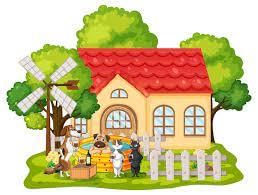 Dogs and cats usually live in homes as pets, often in cages or houses.
Dogs and cats usually live in homes as pets, often in cages or houses.
(viii) Which animal lives in a stable?
(a) Horse
(b) Fish
(c) Frog
(d) Squirrel
Ans: (a)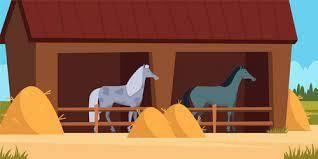 Horses live in stables, which are their shelters.
Horses live in stables, which are their shelters.
Q2: Match the animals with their suitable shelters.
 Ans:
Ans:
1. Dog - b. Nest
2. Fish - d. Pond
3. Bear - a. Burrow
4. Rabbit - c. Stable
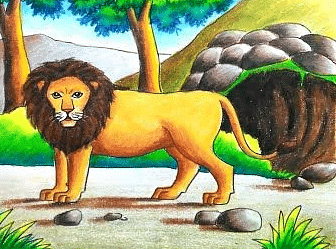
Q3: Write 'T' for true and 'F' for false.
(i) _____ Lions are herbivores.
Ans: False
Lions are carnivores that eat other animals.
(ii) _____ Birds build nests to lay eggs and raise their babies.
Ans: True
Birds build nests for protection and raising their young.
(iii) _____ Fish live in deserts.
Ans: False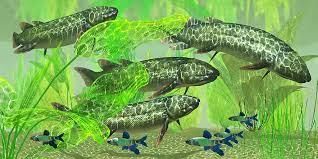 Fish usually live in water, not deserts.
Fish usually live in water, not deserts.
(iv) _____ Animals need shelters to protect themselves from weather and enemies.
Ans: True
Shelters protect animals from harsh weather and predators.
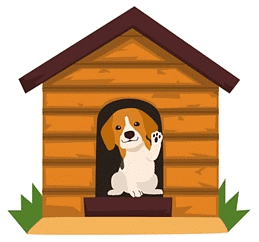 Q4: Short Answer Questions.
Q4: Short Answer Questions.
(i) Why do animals need food?
Ans: Animals need food to get energy for their activities like running, playing, and growing.
(ii) Name two types of animal shelters.
Ans: Two types of animal shelters are burrows (for animals like rabbits) and nests (for birds).
(iii) How is a carnivore different from an omnivore?
Ans: A carnivore eats only other animals, while an omnivore eats both plants and animals.
(iv) Where do frogs usually live?
Ans: Frogs usually live near water bodies like ponds, lakes, and marshes.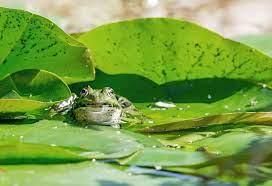
|
33 videos|215 docs|44 tests
|





















